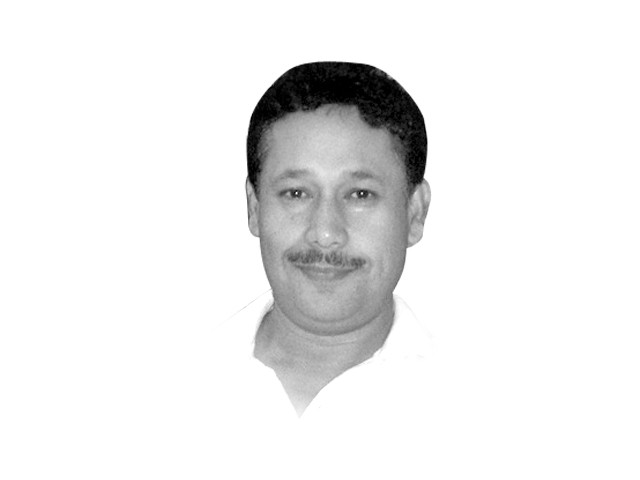Balochistan — ballot or the bullet?
Without addressing fundamental, structural flaws of election, subsequent democratic process would fail to bring peace.

Balochistan — ballot or the bullet?
However, Baloch qualms about engineered political processes are not fictitious. I am not a big fan of Stalin but his quote truly sits well within the Pakistani political context. He said that “Those who cast the votes decide nothing; those who count the votes decide everything”. The ensuing situation in Balochistan has compelled many to look for radical alternatives, including political violence to protect their collective interests and attain their political and economic objectives.
Over the years, due to continued manipulation of political and electoral process, the lack of confidence and trust amongst Baloch nationals in state institutions, including election process and an unproductive parliamentary system has been reinforced. Therefore, the CEC’s plain offer may not encourage the Baloch to opt for the ballot.
In the pending Asghar Khan Case, former DG-ISI General (Retd) Asad Durani has openly admitted the ISI’s role in politics and the election process. Recent revelations about the 2008 elections in Balochistan also confirm how pro-establishment candidates were flooded with “money and support” by the security apparatus.
The whole of Balochistan has been besieged since 2002. Many top Baloch leaders have been systematically killed, resulting in targeted killings, forced disappearances and the kill-and-dump policy of Baloch nationalist have left no room for moderate political activists to participate in the democratic process, including public mobilisation, voter registration, verifications and civic education.
Compelling questions have been raised about the Final Electoral Roll (FER) of 2012, which indicates 22 per cent less voter registration in Balochistan compared with the FER of 2007. The number of female voters on the lists has also decreased by more than 600,000, while millions of Balochistan voters are simply missing from the FER 2012.
After forming a clear understanding about politically-stagnant Balochistan, the CEC and the Election Commission of Pakistan have to come up with a concrete agenda to ensure a transparent process. These include, but are not limited to, demilitarisation, pre-poll accountability of serving the political regime, stopping appalling human rights violations against Baloch people and revitalising the political process.
Pakistan’s election-related dispute resolution mechanism is completely ineffective. They work under immense influence of the ruling government and security apparatus. In contradiction to section 67 (1A) of the Representation of People’s Act of 1976, the election tribunals linger on cases for years. During 2002 to 2007, despite confirmation of fake degrees of half of the MPAs in Balochistan, their cases were delayed until their terms finished. The EC ineffectuality is a big question mark when it comes to the real test. In April 2012, the Supreme Court directed the Election Commission of Pakistan to verify the degrees of some 70 parliamentarians, out of 937, and these degrees were then sent to the Balochistan University for further scrutiny. However, due to severe pressure from the ‘agencies’, the university declared all of them ‘valid’. Despite this huge deception and fraud, the EC and the apex Court failed to take action against perpetrators of this national crime.
Without addressing fundamental and structural flaws of elections and the subsequent democratic process, the futile exercise of vote casting would miserably fail to bring peace, prosperity and political stability. In fact, ambiguous ballots cannot guarantee Balochistan’s future in Pakistan and nor can a bullet ensure the integrity of the state. In reality, the will and policies of the dominant establishment will define the future course of Baloch and Pakistan relations.
Published in The Express Tribune, September 15th, 2012.














COMMENTS
Comments are moderated and generally will be posted if they are on-topic and not abusive.
For more information, please see our Comments FAQ